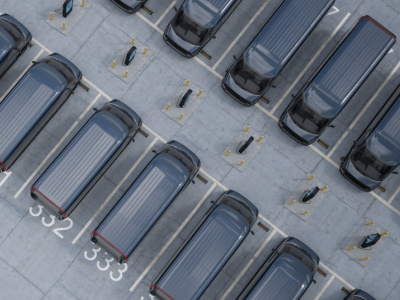When Can Taxpayers Claim Commercial Clean Vehicle Credits?
 As the push for a greener future continues, many businesses are exploring ways to reduce their carbon footprints. One way to accomplish this is by investing in commercial clean vehicles. These vehicles run on alternative fuels or have advanced energy-saving technologies that help minimize emissions and promote sustainability.
As the push for a greener future continues, many businesses are exploring ways to reduce their carbon footprints. One way to accomplish this is by investing in commercial clean vehicles. These vehicles run on alternative fuels or have advanced energy-saving technologies that help minimize emissions and promote sustainability.
To incentivize businesses to make environmentally friendly choices, the IRS offers tax credits for purchasing and using commercial clean vehicles. These tax credits can provide significant financial benefits, making it more affordable for businesses to transition to cleaner transportation options. However, understanding when and how these credits can be claimed is essential to ensure compliance with IRS regulations. An experienced attorney can provide guidance on what tax credits may be available and what steps businesses can take to minimize their tax burdens.
Qualified Vehicles
The commercial clean vehicle credit was created by the Inflation Reduction Act, which was passed by Congress in 2022. In order to qualify for the commercial clean vehicle credit, a taxpayer must purchase or lease and place in service a qualified vehicle that meets certain criteria set by the IRS. Generally, qualifying vehicles include those powered by electricity or hydrogen fuel cells, as well as certain hybrid vehicles.
The specific requirements may vary depending on the type of vehicle and its weight classification:
-
Battery Electric Vehicles (BEVs) - These vehicles derive all their power from electricity stored in onboard battery packs
-
Fuel Cell Electric Vehicles (FCEVs) - Fuel cell vehicles are powered by hydrogen gas converted into electricity through a chemical reaction within the fuel cell stack
-
Plug-In Hybrid Electric Vehicles (PHEVs) - PHEVs combine an internal combustion engine with an electric motor and battery pack
Claiming the Commercial Clean Vehicle Credit
A taxpayer can claim the commercial clean vehicle credit for the year in which a qualifying vehicle was acquired and placed in service. A vehicle must be used for business purposes, and it must primarily be used on public roads and highways. The amount of credit available depends on several factors, including the type of vehicle, its weight classification, and the incremental cost of the vehicle, which is the excess purchase price of this type of vehicle when compared to a conventional vehicle. The IRS recently issued guidance on what credits may be taken for different types of vehicles.
The credits currently available for qualifying vehicles are as follows:
-
BEVs and FCEVs under 14,000 pounds - For vehicles that are not powered by an internal combustion engine, the credit may be 30% of the taxpayer’s tax basis in the vehicle or the incremental cost of the vehicle. The maximum credit is $7,500, and the IRS has stated that it will accept this amount as the incremental cost for non-compact street electric vehicles.
-
PHEVs under 14,000 pounds - For vehicles that are partially powered by an internal combustion engine, the credit may be 15% of the taxpayer’s tax basis in the vehicle or the incremental cost of the vehicle. The maximum credit is $7,500. For compact PHEVs, the IRS will rely on a Department of Energy (DOE) analysis showing that the incremental cost of these vehicles is $7,000. For other PHEVs, $7,500 may be accepted as the incremental cost.
-
Electric vehicles over 14,000 pounds - For large commercial vehicles, a taxpayer may take a 15% or 30% tax credit depending on whether a vehicle is fully electric or uses an internal combustion engine some of the time, or the tax credit may be based on the incremental cost of the vehicle. The maximum credit for these vehicles is $40,000. The IRS will accept the incremental cost for a specific type of vehicle as specified in the DOE analysis. Based on this analysis, credits may range from $28,000 to $40,000.
Contact Our San Jose Business Tax Credit Attorney
If you are considering investing in commercial clean vehicles for your business, it is important to understand how tax credits can help offset the costs of this investment. At John D. Teter Law Offices, our San Jose, CA business tax lawyer can advise you on what requirements you need to meet to claim the clean commercial vehicle credit or other tax credits. We can also provide representation during tax audits and ensure that you are prepared to address any issues raised by the IRS. Contact our firm today at 408-866-1810 to arrange a consultation and learn how we can help you build a successful tax strategy.









